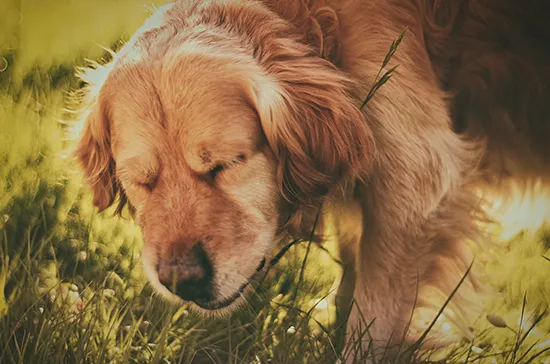Reverse sneezing: understanding the snorting sound
The strange, honking sound known as reverse sneezing is probably familiar to everyone who has ever owned a dog.
Often misinterpreted as choking or suffering, it can be a scary experience for new dog owners. Nonetheless, dogs often demonstrate reverse sneezing, which is a harmless reaction.
To help you comprehend and properly manage this common dog condition, we'll examine its causes, symptoms, and available treatments in this post.
What is reverse sneezing?
In dogs, reverse sneezing, often referred to as paroxysmal respiration, is an abrupt, involuntary contraction of the throat and diaphragm muscles. The quick, loud inhaling of air brought on by this spasm is frequently followed by a snort or honking sound. Although it can be very concerning, the illness is usually benign.
Common causes of reverse sneezing
Although the precise reason for ‘reverse sneezing’ in dogs isn't always known, the following conditions can produce this reflex:
- Environmental irritants: Reverse sneezing episodes can be brought on by exposure to irritants such as dust, pollen, smoke, or strong odours.
- Emotions: Stress or excitement can occasionally cause fast breathing and heightened sensitivity to irritants, which might set off a reverse sneezing episode.
- Respiratory infections: Reverse sneezing occasionally indicates an underlying respiratory infection, such as bronchitis or kennel cough .
- Nasal polyps: Rarely, nasal polyps can cause reverse sneezing by blocking the nasal passages.
To rule out any underlying medical issues, it's important to contact us if your dog has severe or regular episodes of reverse sneezing. Book a consultation at Blacks Vets in Dudley today!
Symptoms of reverse sneezing
An abrupt, strong air intake accompanied by a honking or snorting sound is the main sign of reverse sneezing. Additionally, your dog can display the following symptoms:
- Extension of the head
- Stretching the neck
- Bulging of the eyes
- Sounds of choking or gagging
How to help your dog during a reverse sneezing episode
Although it can be frightening, reverse sneezing is frequently a harmless response that goes away on its own. The following advice will help you soothe your dog during an episode:
- Remain calm: Try to maintain your composure and reassurance because your dog can sense your nervousness. Your dog will feel more at ease if you are also displaying signs of ease.
- Avoid interrupting: During the session, resist the temptation to pet or converse with your dog. Because it may divert your dog's attention from the reflex's normal progression, this could inadvertently lengthen the episode.
- Establish a calm environment: To reduce distractions, move your dog to an area that is peaceful and quiet. This can help them concentrate on breathing and hasten the end of the episode.
- Visit your vets: To rule out any underlying medical concerns that might be the cause of your dog's frequent or severe episodes of reverse sneezing, it's crucial to speak with your vet.
Keep in mind that the majority of reverse sneezing occurrences are harmless and will go away on their own. However, you should always check with your local veterinary practice if you have any concerns about your dog's health.
When else should you seek veterinary care?
Although reverse sneezing is usually benign, it's crucial to get your dog checked out if you observe any of the following symptoms: frequent or severe episodes that interfere with your dog's daily routine, breathing difficulties, or other alarming symptoms like fever, lethargy, appetite loss, or excessive coughing.
These symptoms could point to a medical condition that needs immediate attention from a veterinary professional. It is best to identify problems early on, so be sure to contact our team at Blacks Vets in Dudley and we can advise you of the best course of action.
Consult with your vets today
Even though reverse sneezing can be frightening, it's usually a harmless response that doesn't need to be treated right away. Knowing the signs and causes of reverse sneezing will help you stay composed and soothe your pet during these episodes.



